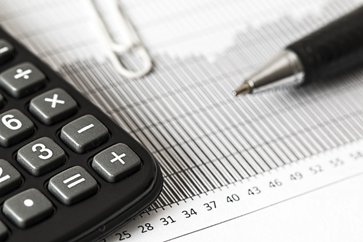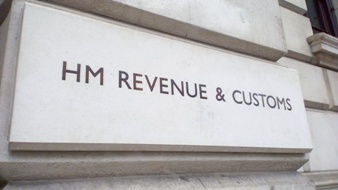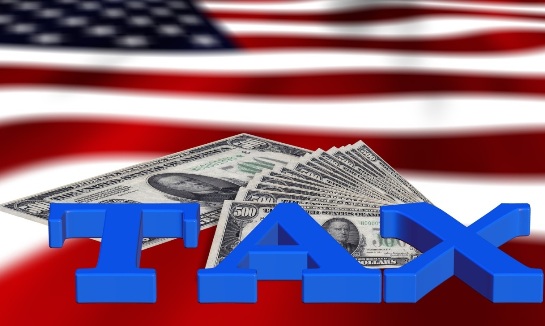OECD Permanent Establishment Rules

January, 2021
Author: Dominik Stuiber
Does the OECD Permanent Establishment Rules conflict with Hong Kong’s established Territorial Source Concept?
Earlier this year, the Inland Revenue Department (“IRD”) in Hong Kong published its first tax ruling addressing the question of permanent establishment and attribution according to the OECD Model. With the introduction of international concepts to Hong Kong’s tax regime, questions of compatibility with existing systems arise.
Background
As an OECD member, Hong Kong has been committed to implementing the BEPS (domestic tax base erosion and profit shifting) Project to tackle tax avoidance together with Inland Revenue’s (Amendment) (No. 6) Ordinance 2018 which introduced and codified transfer pricing principles, permanent establishments and CbC reporting. Prior to the legislative amendment, the IRD relied on general provisions in the Inland Revenue Ordinance (“ IRO”) and its Departmental Interpretation and Practice Notes (“DIPNs”) to deal with transfer pricing issues and application of the arm’s length principle. Until then, the definition of ‘permanent establishment’ appeared only in double taxation agreements.
Hong Kong has established a unique tax regime that taxes only profits derived from “carrying on a trade, profession or business in Hong Kong [..] from such trade, profession or business (excluding profits arising from the sale of capital assets)”. It is noteworthy that the charge to profits tax includes only profits resulting from a trade, profession or business and not the total income. Income of capital in nature, i.e. capital gains, or passive income such as dividends and interest is not subject to the tax charge. Over the years the Courts have considered the issue of source of profits and the following guiding principles have emerged:
- Matter of Fact
The question of source of profits is a hard, practical matter of fact. There is no universal rule that applies to every scenario. Whether profits arise in or are derived from Hong Kong depends on the nature of the profit and transactions which gave rise to the profits.
- The Operations Test
The broad guiding principle is to examine what has been done to earn the profit and where. In other words, the proper approach is to identify the operations which produced the relevant profit and ascertain where those operations took place. The source of profits must be attributed to the operations of the taxpayer which produced them and not the operations of other members in the taxpayer's group.
- Antecedent or Incidental Activities
The relevant operations do not comprise the whole of the taxpayer's activities. The focus is on establishing the geographical location of the taxpayer's profit-producing transactions as distinct from activities antecedent or incidental to those transactions.
- Place where Decision is Made
The place where day-to-day investment/business decisions take place is only one factor to be taken into account in determining the source of profits. It is not usually the deciding factor.
- Gross Profits from Transactions
The distinction between Hong Kong profits and offshore profits is made by reference to the gross profits arising from individual transactions.
- Overseas Business Presence
A business may maintain a presence overseas earning profits outside Hong Kong but the absence of such does not, in itself mean that all the profits of a Hong Kong business invariably arise in or are derived from Hong Kong. However, in the vast majority of cases where the principal place of business is located in Hong Kong and there is no business presence overseas, profits earned by that business is likely to be chargeable to profits tax in Hong Kong.
2-Step Test
The source of profits guiding principles have similar elements to the defining characteristics of a permanent establishment. The IRD, in its DIPN 60, has established a 2-Step test in an attempt to resolve any conflict.
- the attribution of profits of a non-Hong Kong resident individual to its permanent establishment in Hong Kong as if the permanent establishment were a distinct and separate enterprise engaged in the same or similar activities.
- after the attribution of profits to the permanent establishment in Hong Kong, the broad guiding principle would be applied to determine whether and, if so, the extent to which such profits should be taxed. In this determination the source rules for service, trading or manufacturing income would need to be considered as well.
The attribution rule of same or similar activities could, in certain cases, challenge or alter the application of the source principle where the activities of the permanent establishment differ from the principal office.
Advance Ruling Case No. 66
This ruling applies in respect of section 50AAC(5) and Schedule 17G of the Inland Revenue Ordinance ("IRO").
Background
The Applicant is a limited partnership headquartered in a non-DTA territory and belongs to a group based outside Hong Kong. The group is managed by its Board of Management (“BOM”). The Applicant is the core operational entity of the group.
The arrangement
- The Applicant intends to set up a representative office (“RO”) in Hong Kong.
- A member of the BOM responsible for sales function will be seconded to Hong Kong to manage the RO.
- The RO is established for the purposes of:
- providing marketing and sales support services for the Applicant in the Asia Pacific Region (“the Region”), including introducing and promoting goods of the Applicant to customers in the Region, maintaining relationship with the customers, and collecting trade information and developing marketing strategies in the Region for the Applicant;
- providing a work base for that member of the BOM to perform day-to-day activities for sales during his stay in the Region, including attending to calls with the sales team members, communicating with the sales companies of the group all over the world, and preparing for his visits to the sales companies of the group in the Region;
- providing assistance to a fellow subsidiary of the group in Hong Kong in identifying new customers and promoting the group’s products in Hong Kong.
- The operations of the RO and the fellow subsidiary are completely independent.
The material assumptions in respect of a future event or any other matter made by the Commissioner
There are no assumptions made by the Commissioner.
The ruling
- The RO constitutes a permanent establishment of the Applicant in Hong Kong.
- The Applicant is therefore regarded as carrying on a trade or business in Hong Kong.
- Profits or losses should be attributed to the RO as if it were a separate and independent enterprise engaged in the same or similar activities under the same or similar conditions, taking into account the functions performed, assets used and risks assumed by the Applicant through the RO.
IRD Commentary
- Section 50AAC(5) and Part 3 of Schedule 17G of the IRO are relevant to determining whether a non-DTA territory resident person has a permanent establishment in Hong Kong. Section 5 of Schedule 17G provides that even if the non-DTA territory resident person has a fixed place of business in Hong Kong, the person is not regarded as having a permanent establishment in Hong Kong if the overall activity carried on for it through the place is of a preparatory or auxiliary character.
- In the present case, the RO is a fixed place of business of the Applicant in Hong Kong. It would constitute a permanent establishment in Hong Kong unless its activities in relation to the business of the Applicant as a whole are of a preparatory or auxiliary character.
- When determining whether the activities carried on for the Applicant through the RO are of a preparatory or auxiliary character, reference should be made to the commentary on Article 5 (Permanent Establishment) of the “OECD Model Tax Convention on Income and on Capital”. Paragraph 71 of that commentary is relevant and is extracted as follows:
“A fixed place of business which has the function of managing an enterprise or even only a part of an enterprise or of a group of the concern cannot be regarded as doing a preparatory or auxiliary activity, for such a managerial activity exceeds this level.”
- The managerial activities carried out by the member of the BOM through the RO cannot be of a preparatory or auxiliary character. Therefore, the RO constitutes a permanent establishment of the Applicant in Hong Kong.
The Takeaway
While the IRD in its ruling and commentary confirms its approach to permanent establishments and application of the attribution rules following OECD standards, it fails to address the issue of the territorial source concept. We may have to wait for the courts to decide how the broad guiding principles of the territorial source concept are to be applied case to case.

















